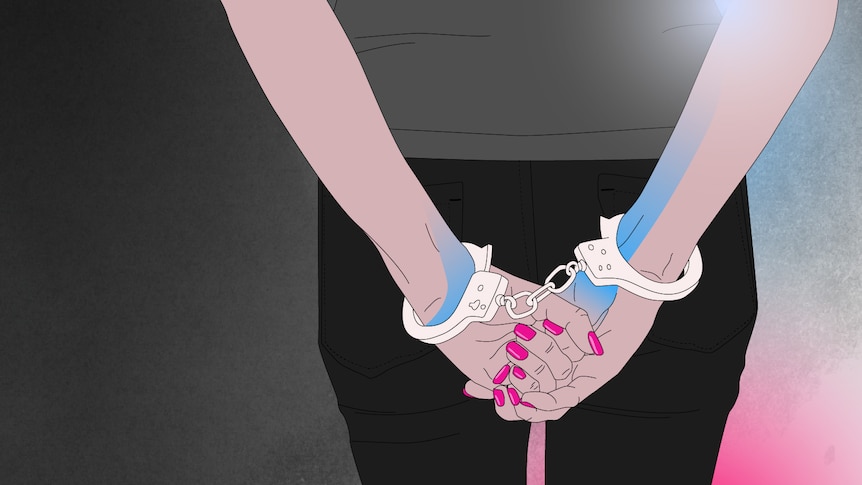In Queensland, legislation on coercive control has been enacted, making it the second Australian jurisdiction to criminalize this form of abuse.
Understanding the Impact of Coercive Control Legislation
Coercive control legislation impact sheds light on a crucial aspect of behavior that extends beyond physical violence. It encompasses a range of abusive behaviors, including isolation, intimidation, sexual coercion, and cyberstalking.
Those who have experienced coercive control often liken it to “intimate terrorism” or a state of constant torment.
Samara McPhedran from the University of Queensland’s School of Law emphasizes that coercive control operates subtly, evading easy detection. It comprises psychological, emotional, financial, and social abuse, forming a complex pattern used by perpetrators to manipulate and dominate their victims.

The Impact of Coercive Control Legislation on Domestic Homicides
Hannah Clarke, along with her three children, tragically fell victim to her estranged husband’s violent actions. This devastating incident sheds light on a prevalent issue in domestic homicides.
Government data from Canberra revealed that coercive control played a significant role in nearly every domestic violence-related fatality over a span of two decades. Similarly, a recent inquiry in NSW in 2021 established a strong correlation between coercive control and the majority of domestic violence deaths.
The findings underscore the critical importance of implementing coercive control legislation to address and prevent such tragic outcomes in cases of domestic violence.
Legislation Impact: Where has Coercive Control Become a Criminal Offence?
The state of New South Wales took the lead in passing laws that establish coercive control as a standalone offence in 2022. However, these laws are set to be enforced starting from July of this year.
In Tasmania, the Family Violence Act of 2004 has prohibited economic and emotional abuse or intimidation for the past two decades.
Western Australia is currently in the initial phases of consultation regarding coercive control legislation, while the Australian Capital Territory government is closely monitoring developments in other regions.
Following a heartfelt campaign by the family of Hannah Clarke, who tragically lost her life along with her three children at the hands of her estranged partner in 2020, Queensland has pledged to criminalize coercive behavior.

The Impact of Coercive Control Legislation on Recognizing Abuse
Lloyd Clarke emphasized that detecting the early signs of coercive control can be challenging. In a tragic incident where Rowan Baxter set fire to a car in which Ms. Clarke and her children were, it was revealed that Baxter exerted control over Ms. Clarke’s actions and interactions. Despite this, Ms. Clarke initially did not recognize this behavior as abusive.
According to Lloyd Clarke, key indicators, or “red flags,” of coercive control include isolation and complete domination over the victim. Reflecting on his daughter’s experience, he mentioned that seemingly minor actions like forcing her to deactivate her Facebook account were actually the beginning of a cycle of control.
Annabelle Daniel’s Insights on Coercive Control
Annabelle Daniel, the CEO of Women’s Community Shelters in New South Wales, highlighted the detrimental impact of coercive control on women stuck in abusive relationships. She described living under coercive control as a form of intimate terrorism or enduring torture, emphasizing the social entrapment it creates for victims.
Coercive control legislation plays a crucial role in raising awareness about the nuances of abuse and empowering individuals to recognize and address such behaviors in relationships.
Understanding the Impact of Coercive Control Legislation
Is the Implementation of Coercive Control Legislation Impact Imminent?
Understanding the Impact of Coercive Control Legislation
When delving into the realm of coercive control legislation impact, it becomes evident that recognizing the signs can be quite challenging. Rather than fearing predators in dark alleys, women often find themselves entangled with individuals they have developed feelings for.

The Impact of Coercive Control Legislation on QPS Responses to Domestic Violence
In a recent 2022 study examining QPS responses to domestic violence, it was discovered that a lack of effective leadership had allowed deep-rooted cultural issues to persist within the service for an extended period. The report highlighted the prevalence of sexism, misogyny, and racism within the QPS, issues that were not always addressed appropriately.
According to the findings, there was a concerning lack of understanding among police officers in Queensland regarding coercive control. Instances of control were often not linked together, indicating a failure in recognizing the patterns of abusive behavior.
Furthermore, the implementation of coercive control legislation is expected to have a disproportionate impact on First Nations people, who already experience higher rates of incarceration. Professor Douglas emphasized that such laws tend to lead to increased criminalization of Aboriginal and Torres Strait Islander individuals.
As Professor Douglas pointed out, careful consideration must be given to the prosecution of offenses under the new legislation due to the serious nature of the crime in Queensland.
Understanding the Impact of Coercive Control Legislation on Family and Domestic Violence Support Services
Exploring the Impact of Coercive Control Legislation: Is Criminalization Sufficient?
Impact of Coercive Control Legislation on Police Response to Domestic Violence Cases
It is alarming how frequently police officers are misidentifying victims of domestic violence as the perpetrators. This grave error disrupts the lives of countless women annually across the nation. The question that arises is why law enforcement continues to make such critical mistakes?

Impact of Coercive Control Legislation on Society
“Merely criminalizing coercive control is insufficient,” emphasizes Ms. Ross-Smith, the director of Griffith University’s MATE program. She stresses the necessity of raising awareness about coercive control, as many individuals are unfamiliar with the term. Educating the public is crucial in enabling them to recognize and address this issue effectively. Additionally, there is a pressing need for the expansion of programs, services, and resources to support individuals who have resorted to violence.
Ms. Ross-Smith envisions that the criminalization of coercive control will shape public perception of this behavior. She expresses optimism that, with adequate support systems in place, it is possible to combat the prevalent national crisis of violence against women in the country.
Impact of Coercive Control Legislation on Related Stories
The Impact of Coercive Control Legislation on Domestic Abuse in Pro Basketballer’s Relationship
The progression of domestic abuse in the relationship of a professional basketball player began with love-bombing and financial control tactics before escalating into physical violence. This case sheds light on how coercive control legislation can play a crucial role in addressing such abusive behaviors. The impact of coercive control legislation on preventing and addressing domestic abuse is evident in this scenario.

Spotting Coercive Control Legislation Impact: A Crucial Red Flag
One aspect that can be particularly challenging is identifying the significant impact of coercive control legislation.

Impact of Coercive Control Legislation on Parents of Hannah Clarke
The parents of Hannah Clarke have come forward to share their firsthand experience following the introduction of coercive control laws in Queensland. The impact of coercive control legislation on families like theirs is profound and far-reaching.

To learn more about coercive control legislation impact, explore related topics such as Brisbane, Bundaberg, Crime, Domestic Violence, Homicide, and State and Territory Government. Please visit our site 60time.com for further information. Don’t forget to follow us on social media at [email protected].


